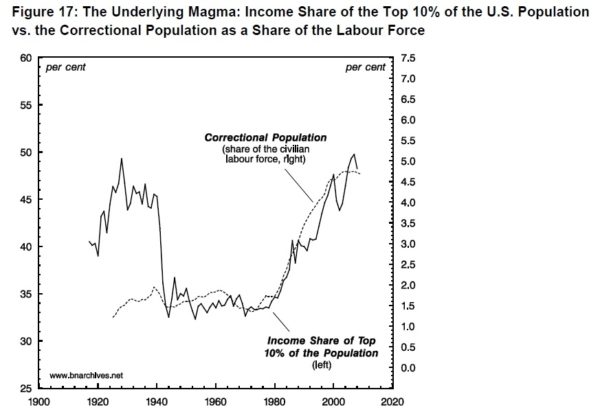(Ps)anking Psychology
The title of this posting is not a mistake, but rather intended to show that psychologists are busy falling off the table by saying that spanking is bad. Some time ago when I mentioned that emotions are an attribute to conservatives rather than liberals/SJWs (whom mostly express surface feelings based on a low average emotional state), Albert Brenner made the remark that Freud (and Jung) seems to have been the last of the real investigators in this area of expertise (my wording).
The thing is that the Patriarchy seems to have been under attack from all corners, despite it being relatively successful. Meaning that spanking is probably a Patriarchal thing and apparently a “white” thing, hence a bad thing detrimental to those poor children… especially the greatest generation?
The developmental psychologist Elizabeth Gershoff literally spent her life on researching and building the argument that spanking is bad.
Gershoff and University of Michigan professor Andrew Grogan-Kaylor sift through 75 studies, for a total data pool of nearly 161,000 children, and find “no evidence that spanking is associated with improved child behavior.”
What’s more, the analysis finds evidence that spanking is associated with troubling outcomes — like increased aggression, increased anti-social behavior, and mental health problems later in life.
I asked a retired remedial post-graduated teacher if he supports spanking and he stated “only under severe circumstances.” I then asked a medical General Practitioner whom also assisted convicts receiving corporal punishment and he stated “convicts in general never returned for another spanking.” In fact they hated it and think it worse than being raped in a normal prison, meaning they were not caught again or they moved to another town. Finally I spoke to a warden and he stated that corporal punishment was generally only given to serious first offenders as an alternative to actual long prison sentences. But he also told me, that “in his days” the principle “leaders” of a community (such as the Head of a School, the Mayor, the Religious Pastor, the Business Chairman, the Sheriff, the Judge and himself) would meet on a quarterly basis to discuss the current state of affairs, including problem citizens.
This is interesting because these “old guys” followed a multi-disciplinary process or perhaps an integrated process to address “punishment” and other solutions to benefit an entire society, of which “spanking” is basically a small part.
Elizabeth remains adamant:
But Gershoff suspects spanking does lead to these detrimental outcomes. Or, at the very least, she makes the convincing case that spanking doesn’t do any measurable good.
What she is saying is that data collected over approximately four decades indicate that spanking does not do any “measurable” good.
Business people in general like the concept of “carrot and stick” where the carrot (such as a bonus) is supposed to incentivize an employee and the stick (to be fired) positioned as the alternative. There are no counselling sessions, stress amelioration, sharing of feelings or other modern bed-side manners. The stick is therefore a widely accepted “punishment” technique literally used by everybody and I have never heard anybody complain about it. (If there are complaints — it is of no consequence)
Clearly punishment works well with humans. It works so well that cuckolded politicians are willing to sell their wives to prevent personal “punishment.” It works so well that youthful commentators would heavily criticize Christian people, but not Muslims (because Muslims are violent). It works so well that accredited journalists would fake facts to prevent bad imagery — a sort of victim mentality. It works so well that SJWs Always Lie ( via the author VoxDay) to prevent “punishment.”
At this point it is clear that there are more to “punishment” than mere psychology. But to illustrate the point that psychology has been on thin ice for a very long time, consider the following actual cases:
- An SJW mother and child go to see a psychologist (about the child’s deviant behavior). Using excellent bed-side manners the psychologist tells the mother that she raised her boy incorrectly between three and five years, but that it was not her fault because she was divorced. The mother simply moved on to discuss the “next” step. She did not ask what exactly went wrong so that she could correct her own deviant behavior.
- Psychologists are academically disinclined to investigate contentious issues simply by its very nature of appeasement, so they spend time on moral things like what is right or wrong (spanking) or on whether meat is actually good for you.
It may well be that Albert Brenner was right to criticize psychology for not knowing things, in fact my opinion based on dark organizational theory is that psychologists know very little indeed. I recently confirmed this when speaking to a psychology student who said that this aspect did not feature in her curriculum at all.
The concept of spanking has been racialized too by saying that it came from the “slave-masters” but some reference was also made that “beatings” are not actually spankings. There may be some truth to this because African tribal culture does not support “spanking.” This is confirmed by my own observation in South Africa, but Stefan Moleneux challenged me by referencing a non-tribal inconsequential black Christian church doctrine promoting “spanking.” In fact even in Muslim culture spanking is rarely applied. It may be fair to say that collectivists raise their children in a collective fashion, where Western families would rather “cover” for each other than enforce some “punishment” since we have trouble with authority and hierarchy in our dark egalitarian times.
Here is a chart of incarceration vs 10% wealth showing the more successful a justice system, the better for the economy (broadly stated).
Is spanking for the good of society and not the child alone? Since Western Civilization is the most successful society ever, maybe it is. Punishment may start at spanking, but it quickly escalates in the adult world. In collectivist cultures perpetrators are mostly just killed (beheaded), but in western society a more gradual approach is taken and it appears that contributes to success. Spanking therefore is indeed better than not-spanking, for the child and for society as a whole.
Tags: dark organization, liberalism, psychology, resentment, spanking











